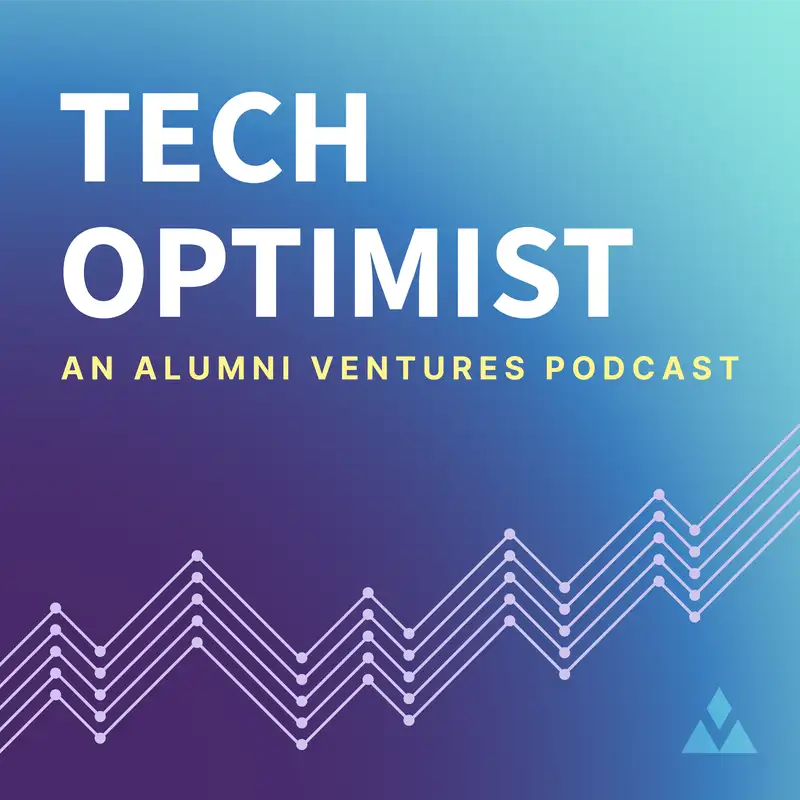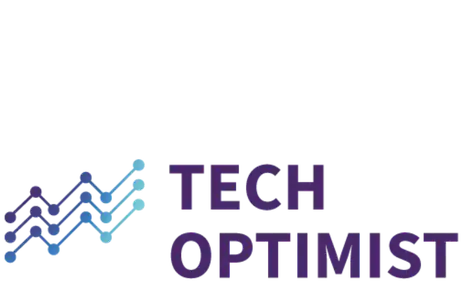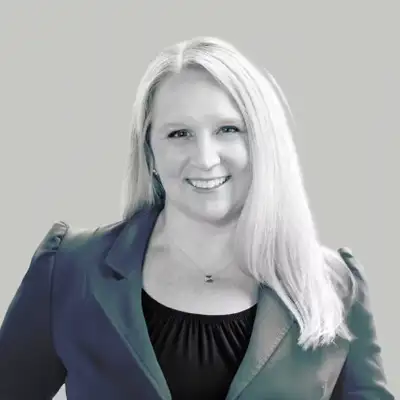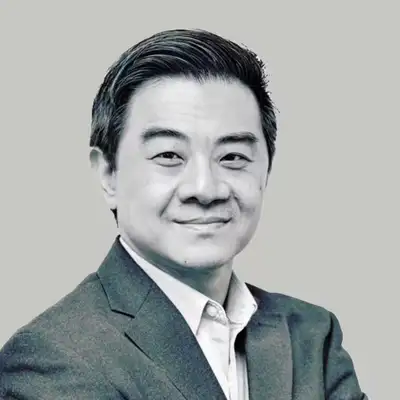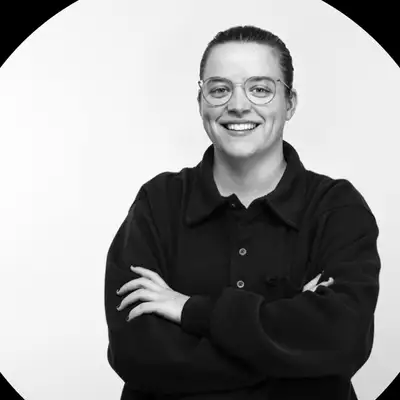#47 - Sahara AI: Tools To Help You Own and Monetize Your Personal Information
Sam:
Is your AI on the blockchain? If not, it should be.
Sean Ren:
So, that triggered me to think about a new space of a problem for AI, which is the ownership, the copyrights, the provenance, right? To approach this problem as Sahara AI is to build a blockchain platform that really advocate and implement the idea of sovereignty and provenance for AI. So, with that, we build on top of the blockchain layer, we have the execution layer, which is providing the AI infrastructure that can serve the whole life cycle of building an AI model from dataset to model to application.
Sam:
All right. Welcome back to this episode of The Tech Optimist. We have another Meet the Startup episode for you today and our guest company today is Sahara AI. So, now the lead of this episode is going to be Ray Wu, managing partner at Alumni Ventures. He's awesome. He's a great host for this podcast. And then, our guest entrepreneur today is Sean Ren, the co-founder at Sahara AI. And then, of course, you'll hear my voice. My name is Sam and I'm the guide and editor for this show. Let's get into it. We're back at it.
So, a little bit about the conversation today. Sahara AI is a decentralized AI blockchain platform which is designed to empower users to own, control and monetize their AI data assets, is how you can integrate AI with blockchain technology to create a distributed and transparent AI ecosystem. Now, Ray and Sean talk a lot about provenance when it comes to this AI technology, the life cycle of AI datasets and applications, and how important it is to protect this AI and protect the sovereignty of AI. It's a emerging aspect of this field that I think has become Sahara AI's niche, which I think they capture very, very well. They successfully got another massive round of fundraising recently, so congratulations to them. We'll hear more about that here in a second. But this is a very clear and concise to understand episode. The narrative is wonderful and Ray and Sean have a really cool conversation. So, sit back, relax, and enjoy this episode. I'll see you in a bit.
As a reminder, The Tech Optimist podcast is for the informational purposes only. It is not personalized advice and it's not an offer to buy or sell securities. For additional important details, please see the text description accompanying this episode.
Ray Wu:
Hi, my name is Ray Wu. I'm a managing partner of Alumni Ventures. Today, I'm talking to Sean, founder of Sahara AI. We invested in Sahara AI last year and continue to support the company in its latest round of funding.
Sean, thanks again for joining us today. Before we get started, maybe we can start by introduce yourself and the company, so that we can get the sense of the progress and your background as well.
Sean Ren:
Thank you, Ray. I'm glad to be here. Thanks for inviting me. Hi, everyone, I'm Sean Ren. I'm the CEO and co-founder of Sahara AI, and I'm also an associate professor of computer science at University of Southern California.
My background is kind of interesting mix between academia and industry. So, I've been working in the area of AI or more specifically speaking, NLP or natural language processing, for over 15 years in my career so far. Latest, before starting Sahara in 2023 with Tyler, my co-founder, I spent almost seven years as associate professor at USC, computer science department. There, I worked with my PhD students basically looking at general AI problems. Back then, we are still trying to make AI really become more general and cheaper and more efficient to be deployed for different personal or customized use cases. Right? So, the particular topics I look at there was like federated learning framework that can make the model better, customized with the business or local user data. And then, how to protect the user privacy, how to build trust by explaining to the user what this AI is really doing when they're making decision for you, things like that.
That gave me really good exposure to the cutting-edge research results back then across the AI landscape. Helped me really finding the thesis for Sahara AI right now. But meanwhile, at the third year of my time at USC, I starting being a part-time consultant for Snapchat, working with their data team to help them better predict user engagement with the AI technologies and help building better personalized model with them. I think the learning there is hugely also impacting my, right now, day-to-day working principles at Sahara, which is trying to find the right balance between technology advancement and the tangible solutions that can be really deployed in real-world cases with a huge user base, right? That you have to find a lot of trade-off between scalability and the complexity of the solution, which is very helpful for my time here.
And before my time at USC, I spent a year as a postdoc at Stanford, which really laid out my path forward to focus on AI and particularly natural language technology. And I did my PhD at University of Illinois Urbana-Champaign for five years. I think an interesting thing to highlight there is that I had my first entrepreneurship experience back in my third year of my PhD time. I worked with two of my other PhD cohort to start a company called Style Puzzle, which is using deep learning technologies to build a recommender system for fashion domain. Right? Basically try to digitalize your closet and try to find the best match that you personally like day-to-day.
And I think my biggest takeaway from that experience, which last for a year and a half, is to look at not just the product and technology side of the business, but really look at the business operation, the marketing, the project management, people management, and so on. I learned a lot about what kind of potential failure points and what kind of potential challenges a startup would have other than just building a good product and trying to find users of the product. I think those takeaways are still really refreshing for me today when I start building Sahara with Tyler. I think that's a hugely impactful experiences for myself.
Sam:
That is one of my favorite things about this show and about this podcast and about virtually meeting all of these people, right? While I'm editing and going through each show, is you really get to understand a person. A perfect example is Sean's background and how he's a professor on the side or he's a professor as another part of his job, and I think that's just a really cool aspect of who he is and it gives you more context on what kind of person he is and everything. So, we're going to hop into a little bit more about the specifics with Sahara AI, but first we're going to do an ad, and then we'll get right back into it.
Sophia:
Hey, everyone, just taking a quick break so I can tell you about the AI fund from Alumni Ventures. Alumni Ventures is one of the only VC firms focused on making venture capital accessible to individual investors like you. In fact, Alumni Ventures is one of the most active and highly rated VC in the US, and we co-invest alongside renowned lead investors.
With our AI fund, you'll have the opportunity to invest in a portfolio built entirely around advancement in AI. This fund consists of 15 to 20 investments in multiple fields where AI is making a huge impact, including areas such as machine learning, healthcare, education, transportation, and more. To get started, visit us at av.vc\funds\aifund. Now, back to the show.
Sean Ren:
And right now-
Ray Wu:
Yeah, thanks.
Sean Ren:
... about Sahara AI. Just to share a little bit about Sahara AI, right? I think the context for really starting Sahara is very interesting because back in 2022, I was talking to Tyler that I've been working in AI there for almost 12, 13 years. I really start seeing an inflection point for AI where this model become no longer a toy and they become much, much more powerful. Meaning that number one, they are very general, they can do a range of different things. Number two, they are closer to human performance, especially surpassing average human in terms of doing many tasks. For example, translation, summarizing text, answering questions about some scientific topics.
So, this really changed again, because in the past you don't worry at all is AI going to be impacting people's jobs or lives? You're going to just be seeing them as sort of your even little toys that you can play with to make you happy. But right now, they can start automating your jobs, meaning that potentially companies, especially centralized companies could use them to replace you. And the outcome, which is likely negative, is that more and more people will start losing jobs and losing their monetization business opportunities. Right?
So, that's triggering me to think about a new space of problem for AI, which is the ownership, the copyrights, the provenance. Right? There's not a viable solution yet, back then, to really protect users' control over their personal knowledge, which most likely in the form of data and model of themselves, so then they eventually will enter into a situation that users would not be willing to give out any of the personal data. And in return, the AI will also be rather limited because the AI doesn't understand you as an individual person to customize to your personal life and needs. So, we'll enter into that sort of bottleneck. And my way with Tyler to approach this problem at Sahara AI is to build a blockchain platform that really advocates and implements the idea of sovereignty and provenance for AI.
Sam:
I think this is very well said, and I think Sean's statement just now has a lot of weight behind it. So, I want to define sovereignty and provenance really quick when it comes to another entity. So, key aspects of sovereignty are supreme authority and independence. So, sovereignty implies that the governing body or person or individual business has the ultimate authority over its territory and population, making it the highest decision-making power within that jurisdiction.
A sovereign state or person or business, in this sense, operates autonomously, meaning it is not subject to the authority of any external power. And then, in a similar sense, provenance refers to the origin or source of something, particularly in terms of its history and ownership. It's commonly used in various fields such as art, archeology, and history. But now, from what we can tell, Sahara AI is flipping it on its head to also apply to technology, innovation and AI.
Sean Ren:
And we build that with sort of a layer view of how this infrastructure should be constructed. At a very underlying fundamental sort of a layer is the Sahara blockchain, which is the L1 blockchain that can support all sort of provenance and ownership utility. For example, ownership token for the model, datasets, agents. Access control for people who need to purchase or access these resources. And also a provenance structure, they'd be able to trace how this model was created initially from building up a dataset then to fine-tune a model using the dataset, then iterate on the model to make it better and better with the human feedback, to very end, an application, [inaudible 00:12:55], that can start monetizing themselves.
And we can use this provenance to really do revenue sharing by back-tracing using the provenance structure. So, with that we build on top of the blockchain layer, we have the execution layer, which is providing the AI infrastructure that can serve the whole lifecycle of building an AI model from dataset to model to application.
And at the very top is the application layer where we embrace, interact with the developers and users to provide them the basic building blocks to interact with the AI features such as a marketplace, that can let them interact with dataset, model, agents, and all of the tools to help them collect data, label data, guarantee the quality of the data, and also the tools to create their own agent, customize their agent, deploy their agent for other people to access, to pay for it and stuff like that. So, that's kind of like an overview of what Sahara AI is constructed with this layer sort of a view.
Ray Wu:
Nice. Really exciting to have multiple layers as you outlined. I'm curious from a development and milestone perspective, can you share a little bit in terms of where you are both from a fundraising, funding from the VC, and also the development from the company in term of the customers and market attractions at this moment?
Sean Ren:
On the product side, just to give you a quick summary, we have three main product lines that offers different feature. Number one, which is our foundational block is this Sahara blockchain. It's a L1 blockchain purpose built for providence and sovereignty of AI. And this blockchain we already launched its testnet like a month ago, and this testnet is used to host our marketplace product, which is another product line I'm going to say a little bit more. But the testnet is there for recording all of the important transactions and user behaviors on the marketplace, so that we'll be able to understand how data was created, how data was used to fine tune our model and how model was further improved, and so on, and so forth.
Testnet that we launched about two months ago is already integrated with our marketplace product, which is another product line I'm going to dig in a little bit. The idea of the testnet right now is to really record all of the provenance of how these AI access such as the datasets was created, from say, a community of users and how the datasets is going to be used to build models down the road, and so on. Right? So, that's the first product, the Sahara blockchain.
And then, the second product line is this AI infrastructure stack where we'll build basically on top of the key idea which we call decentralized LoRa, or low-rank adapter. And this decentral LoRa, it's a privacy protection methods that can allow user to build their own AI models or deploy their AI models using their local data, without actually exporting or transferring out their local data to any of the external third-party node. This is a tangible way that we can allow user to protect their privacy on data and knowledge while enjoying the power of building a really strong AI model and agents out of the current state of our technology, such as the open source model checkpoints like Llama 3 and Mistral.
And then, on top of this execution layer, we'll be building a couple application products on our application layer. One of them being the marketplace for dataset, a sort of a collection, labeling, trading and model publishing, model monetization, agent sort of creation, and so on. We also have together a no-code and low-code platforms for people to create and customize their agents for using the personal data that was protected using the decentralized LoRa infrastructure on the AI infrastructure layer that I mentioned.
Yeah. So, that's kind of an overview of the three product lines for Sahara. By the end of the year, we'll do a few things as the important milestone. Number one is we'll be launching our mainnet between Q4 this year and maybe Q5 next year. And then, we'll also be launching our no-code agent creation platforms on the application layer. We also will be launching all of the model fine-tuning pipelines and deployment pipelines from the execution layer of the AI infrastructure.
Sam:
So, I know from being the editor of this podcast for a little bit now, I understand how confusing some of this technology and some of this concepting can be in regards to AI, the blockchain, and just anything within that sphere. But I really want to commend Sean here because he has made me, a editor and podcaster, truly understand what his company does. And I just want to give him props for that, because I think he spoke about his company and what they do very, very well.
But I also wanted to share on their research page at saharalabs.ai, Sean Ren left a really good quote at the bottom of the page that I want to share. So he says, "AI development is at an inflection point that on many fronts, AI has started surpassing human performance and automating more and more parts of our life. In the new era, it is critically important to protect the privacy of users, guarantee the provenance of the data and model, and establish a decentralized and trustless network of AI and humans." Okay, one last ad and then we'll round off the interview. Hang tight.
Speaker 5:
Do you have a venture capital portfolio of cutting-edge startups? Without one, you could be missing out on enormous value creation and a more diversified personal portfolio. Alumni Ventures, ranked a top-20 VC firm by CB Insights, is the leading VC firm for individual investors. Believe in investing in innovation? Visit av.vc/foundation to get started.
Ray Wu:
Great. Can you share a little bit in terms of, because I know you're coming out with the news announcement on your latest round, maybe do you want to share a little bit in term of the current fundraising at ... All the VCs that you have attract to support you at this moment?
Sean Ren:
Totally, yes. We're really excited about the upcoming announcement of our fundraise. So, we'll be announcing a total fundraise of $43 million. Participates by many of the top-notch ventures and investors and partners, right? Including this round will be led by Pantera and Binance Labs, and also PolyChain Capital, and also be participated by many of the other venture investors from different parts of the world, including we have our partners from Korea, we have our partners from Thailand and from other APAC regions, as well as many of the US domestic venture partners. Definitely including also the support from Alumni Venture, very much appreciating that.
So, with this very exciting and fruitful fundraise, we're going to be spending this fund in three ways. Right? Number one is definitely to continuously to recruit the best talents in the cross-space of AI and the Web3, right? We need talents. This is also sort of like just using this time as a little advertisements of talents. We want to have the best talents that can help us build our decentralized infrastructure for privacy protection methods, for the decentralized AI infrastructures, and for the production lines of all of the applications that we're building on the application layer. Right? That's number one usage.
Number two usage will be continuously to use this to really broaden our community, mind share, right? Working out to support the developers that are going to be building on top of our Sahara blockchain and building their very exciting decentralized AI application. We potentially will be launching ecosystem funding programs to help support these developers to come to be on top of Sahara chain.
And number three, we'll be using this to really further expand our marketing and other operation activities, right? Especially in terms of running down the road in the rest of the couple key events. Right? We'll be showing up us really strongly in the WebEx event in Japan, the Korean Blockchain Week, at TOKEN2049 in Singapore, and [inaudible 00:22:18], and mainnet, and many others. So, we are really looking forward to be chatting with you if you are interested, and also getting contact for any kind of partnerships that we can potentially build.
Ray Wu:
Yeah. Exciting. Exciting, indeed. Obviously, we want to ask for the support from our communities. You already mentioned a lot of events you can do, but this space, so of course, from a community perspective we want to support you. Anything else that we can do from a community? Obviously, we have a lot of people from the other top universities with the alumnis and also we have 600,000 committee members. So, I mean, anything that we can do to support you would be great to get your perspective as well and how we can support you.
Sean Ren:
Totally. We love the huge and strong networks of alumnis in terms of, I think a couple of things that I already mentioned. Number one, is to really create an ecosystem that encourage people are building AI applications or general Web3 applications that will benefit from a sort of a provenance and attribution infrastructure. We definitely encourage and very excited to talk to them to see how we can best support these different needs with our features. And this will be also a great inspiration for what kind of future we want to prioritize down the roadmap. That's number one.
Number two is to really using the strong influence of alumni network to advocate the community about what is the right ideas and sort of tangible ideas and solid ideas for decentralized AI. This is a huge emerging space, but very nuanced, because many of the projects, they may or may not have the right knowledge and expertise in AI, so they might come from very crypto-native mindset but sort of overlook the visibility and utility of the solutions and ideas in the AI space.
As I come from more AI space, I realized there's a lot of gaps to close, between these two, relatively speaking, very strong community. So, I love to use the exposures, the channels, social events, and many others, to really educate, maybe come up with a lot of research pieces to educate the community about what is the right thing to think about and to do or to pursue in the decentralized AI space.
Ray Wu:
Yeah. Taylor and I have been talking about some joint event in mainnet or something else we can do together as we support you. So, we'd be happy to host some events if you have five offices around the U.S. So, happy to continue to do events together and getting the AIs and work through community together. So, thanks a lot, Sean.
Sean Ren:
Totally.
Ray Wu:
Really appreciate you coming to the call today.
Sean Ren:
Appreciate the time. Right? Really excited to share our upcoming milestones and announcements with you and we want to continuously to keep you guys posted about our exciting progress and hopefully can be back with another episode to share our product updates.
Ray Wu:
Indeed. Indeed. Thanks a lot, Sean.
Sean Ren:
Thank you, Ray.
Ray Wu:
Have a great time in New York and catch up soon in person.
Sean Ren:
Yes. Cheers. Take care.
Sam:
Thanks again for tuning in to The Tech Optimist. If you enjoyed this episode, we'd really appreciate it if you'd give us a rating on whichever podcast app you're using. And remember to subscribe to keep up with each episode. The Tech Optimist welcomes any questions, comments, or segment suggestions. So, please email us at info@techoptimist.vc with any of those, and be sure to visit our website at av.vc. As always, keep building.
